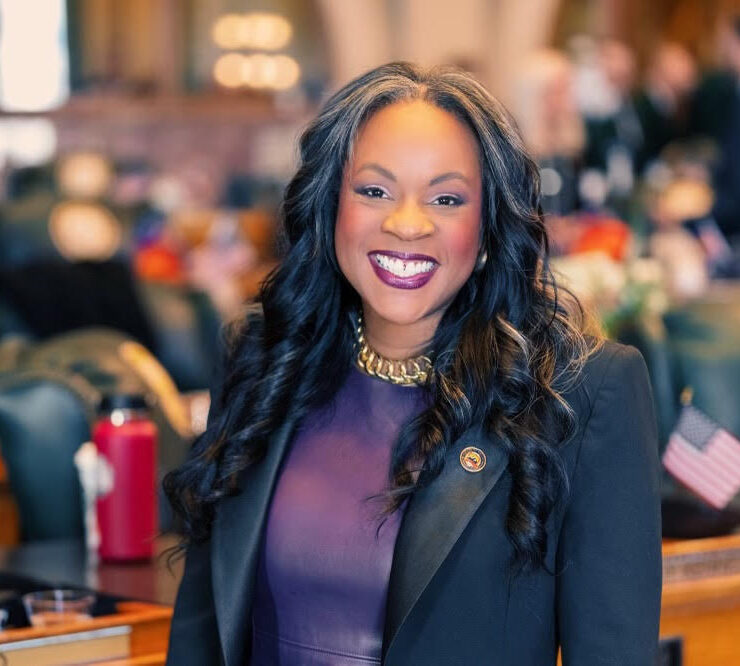Fight for the right: Political battles over marijuana reach new level

The debate over whether marijuana is helpful or harmful has retained its strength well into the 21st century. And with medical marijuana legislation’s roots in America coming out of the AIDS crisis, the LGBT community has had a loud voice in that debate.
This November, Colorado voters will decide whether cannabis rights should be expanded beyond medical patients and find a legal home with those who simply enjoy it as a recreational high. Though some in the LGBT community find Amendment 64 – which would put marijuana on a legal playing field with alcohol – to be a dishonor to those who require the plant for debilitating conditions.
“We still have a lot of work to do just within medical marijuana,” said James Laws, assistant manager of Good Chemistry, an MMJ dispensary on Colfax Avenue. “So I think that maybe 64 is just too much too soon.”
Laws moved to Colorado from Nashville in 2010, following the suggestion of a hometown friend who was enjoying a career as an MMJ cultivator. After enduring a long struggle in Nashville to get his partner access to medical marijuana – as treatment for his terminal bout with AIDS – Laws has first-hand knowledge of the stigma pot carries. “It was so criminal (in Nashville) that to be caught with half a joint or less, you were looking at a misdemeanor – if not a felony.”
When Laws came to Denver, the city was experiencing a boom of medical dispensaries. While MMJ was technically legalized in Colorado in 2000 with an amendment to the state constitution, it wasn’t until the summer of 2009 that the five patient limit on caregivers was lifted, creating what is now known as The Colorado Green Rush. “When I moved here for this job, there were more than 500 dispensaries in the metro area alone,” Laws said.
This boom has provided significant stimulation to Denver’s economy, yet dispensaries have yet to receive any of the “pro-business” treatment that is so popular amongst legislators today. “Since this is still illegal federally, there are no tax breaks for small businesses this industry,” Laws said. “We can’t write off anything. You have to be really, really smart about it. You have to be fiscally responsible.”
This is partially the reason Laws is opposed to Amendment 64. He sees the hesitation among state and federal lawmakers (as well as some mainstream Americans) toward MMJ as indicative of how delicate their situation is. “We’re possibly going to approve marijuana use for every 21-year-old in the state, and I have an issue with that. What does that say about the medical side of it? Does that say it has no medical benefit?”
Mason Tvert of Colorado’s recreational marijuana advocacy group, SAFER, argues just the opposite. “Anyone who is concerned about the federal government [disrupting MMJ] should want Colorado sending a message that we support an even stronger system that addresses every person’s needs as an adult.”
Tvert and SAFER have had a long-standing presence in the state’s marijuana decriminalization efforts, helping to pass legislation that made possession a low criminal priority and coming very close to achieving complete legalization for recreational use on multiple occasions. With Amendment 64, he seeks to make the intoxicant available to all citizens over 21, once and for all solidifying his long-time message that “marijuana is safer for adults than alcohol.”
Tvert sees his argument as inclusive to MMJ patients, making dispensaries exempt from the 15 percent tax recreational stores will experience (thereby making the product cheaper for patients), as well as allowing access for sufferers of ailments not supported by medical marijuana laws, such as post-traumatic stress disorder. “There is explicit language in 64 that says it will not change a single rule or law regarding medical marijuana. And I know of a lot of businesses that are planning to continue providing medical support [if 64 passes], including services like therapy, counseling, acupuncture.”
Among the many ailments that marijuana is proposed to treat – insomnia, headaches, chronic pain, malnourishment – it is championed by recreational enthusiasts to be the ultimate stress relief. “Some people drink a beer at the end of the day, or take a Percocet, or whatever. Everybody has something, and if I want to use this safe, natural, non-chemical product, then why not?” said Dan Henrickson, an HIV-positive recreational marijuana user. “I don’t drink anymore. And marijuana is perfectly harmless.”
Henrickson is not a medical marijuana patient, because he currently does not have a medical marijuana card. “It’s easy to get access somewhere,” he said, mentioning that he was given an MMJ card – treating headaches, nausea and depression, all related to his HIV-status, as well as a head injury – but has since let the prescription laps for financial reasons. “I still need it, but the fact that I’m not getting it at a dispensary – oh well. Why do I need to tell someone why I’m using it, whether it’s medically or recreationally?”
When discussing the history of marijuana, many advocates for the substance are quick to link drug laws with the bigotries of the legislators who wrote them, citing early 20th century cannabis prohibition as a way to crack down on jazz clubs and detain Mexican immigrants. “When Nixon created the Controlled Substances Act in 1970 – basically the start of the War on Drugs – there are all these tapes of Nixon talking about ‘the Jews, the communists, the homosexuals’ as the impetus for the law. They were all the people he hated, and they were lumped in with drugs or people who advocated using drugs.”
Tvert is quick to note the differences between human rights and personal freedoms, establishing that he does not equate the right to freely smoke weed with that of marrying a same-sex partner. Though he will acknowledge the sociological likeness between the two. “Every person has grown up in this country with marijuana being 100 percent illegal, and if you grew up in a time before the Internet, all you had were pamphlets from the government telling you about the dangers of marijuana. And now that’s changing. Just as now that you have gay characters on TV, and people coming out, public attitudes are changing toward them. With medical marijuana laws changing, a lot of people feel comfortable coming out and saying they smoke marijuana.”
What's Your Reaction?
Josiah Hesse writes music, feature interviews and news coverage for Out Front Colorado.











